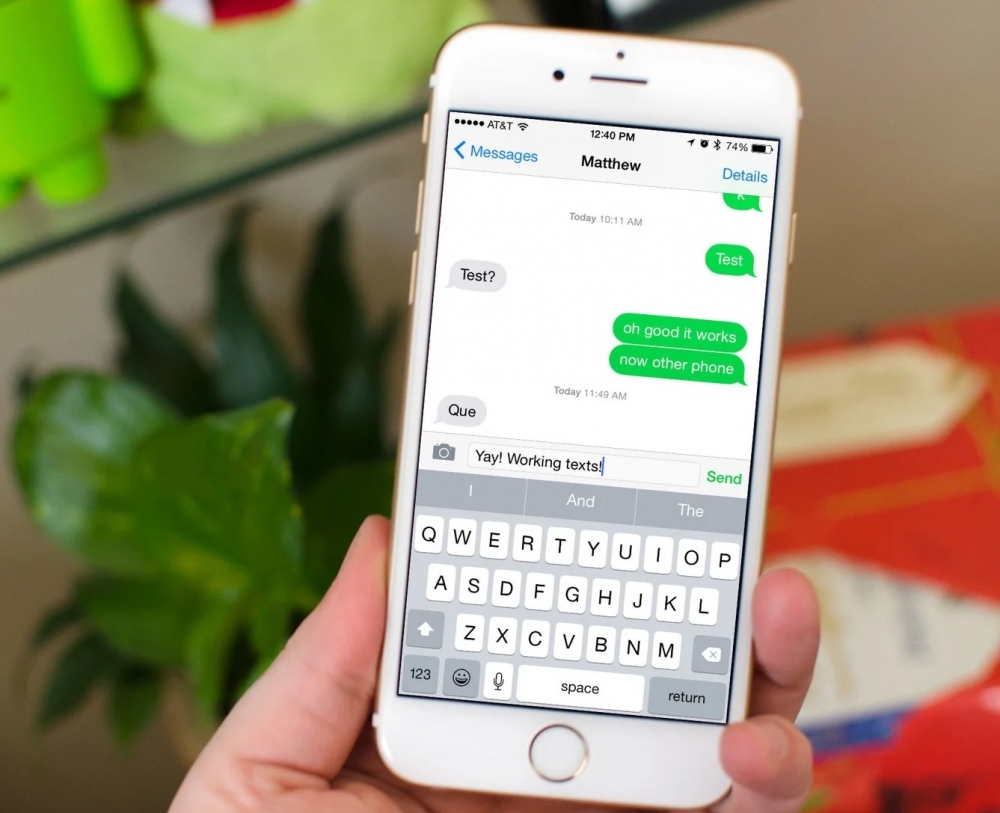Google exec wants Apple to adopt RCS messaging
- The current texting standard, SMS, is out of date, and Google wants Apple to adopt the new standard, RCS.
- RCS brings advanced privacy features and more to texts.
- Android currently supports RCS but iOS doesn’t.
Although we tend to think of SMS as texting, in fact, Google has been moving away from the now-ancient texting standard on its Android platform. A new method of texting, RCS (rich communications services), allows users more privacy and customization when texting others who have RCS messaging enabled. For the past few years, Google has been rolling out RCS to replace SMS in Android phones.
In a tweet, Google executive Hiroshi Lockheimer said that RCS is the clear solution and that group chats between Android and iOS don’t need to be this complicated.
💚 Group chats don't need to break this way. There exists a Really Clear Solution. Here's an open invitation to the folks who can make this right: we are here to help. 💚💙 https://t.co/4P6xfsQyT0
— Hiroshi Lockheimer (@lockheimer) October 7, 2021
SMS messaging, which, was first introduced in 1992, has maintained its title as the primary texting method for a while. Because it is the standard, it is available on Android and iOS alike. It is the reason why texts between an Android and iPhone show up as green on the iPhone. iMessages show up blue, and SMS messages show up green.
 For now, because Apple doesn’t support RCS messaging, Android to iPhone texts are not encrypted and don’t have many features. If Apple would adopt this new standard, then RCS would fully become the new global standard.
For now, because Apple doesn’t support RCS messaging, Android to iPhone texts are not encrypted and don’t have many features. If Apple would adopt this new standard, then RCS would fully become the new global standard.
Recommended by the editors:
Thank you for visiting Apple Scoop! As a dedicated independent news organization, we strive to deliver the latest updates and in-depth journalism on everything Apple. Have insights or thoughts to share? Drop a comment below—our team actively engages with and responds to our community. Return to the home page.Published to Apple Scoop on 9th October, 2021.
No password required
A confirmation request will be delivered to the email address you provide. Once confirmed, your comment will be published. It's as simple as two clicks.
Your email address will not be published publicly. Additionally, we will not send you marketing emails unless you opt-in.